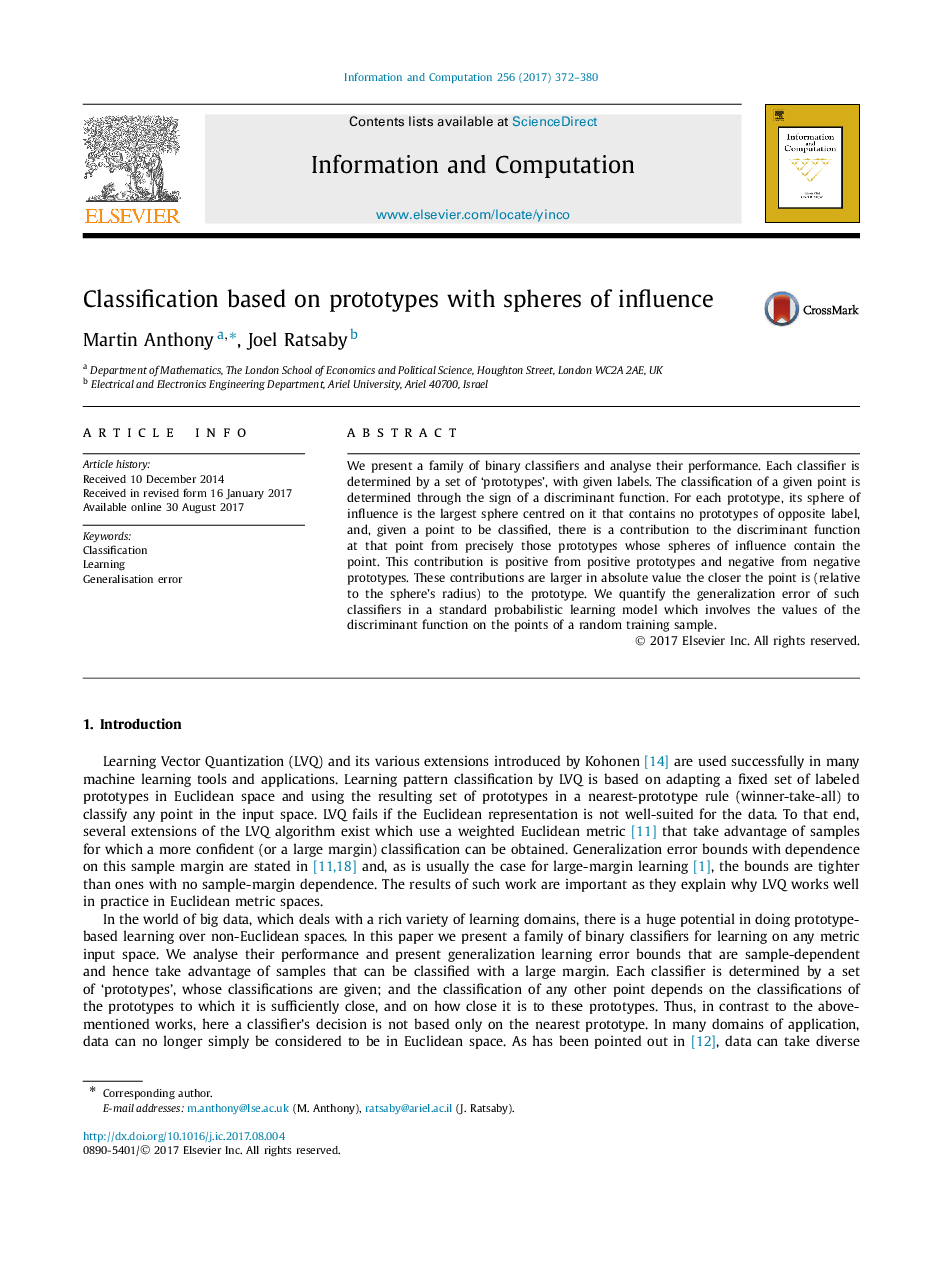| Article ID | Journal | Published Year | Pages | File Type |
|---|---|---|---|---|
| 4950596 | Information and Computation | 2017 | 9 Pages |
Abstract
We present a family of binary classifiers and analyse their performance. Each classifier is determined by a set of 'prototypes', with given labels. The classification of a given point is determined through the sign of a discriminant function. For each prototype, its sphere of influence is the largest sphere centred on it that contains no prototypes of opposite label, and, given a point to be classified, there is a contribution to the discriminant function at that point from precisely those prototypes whose spheres of influence contain the point. This contribution is positive from positive prototypes and negative from negative prototypes. These contributions are larger in absolute value the closer the point is (relative to the sphere's radius) to the prototype. We quantify the generalization error of such classifiers in a standard probabilistic learning model which involves the values of the discriminant function on the points of a random training sample.
Keywords
Related Topics
Physical Sciences and Engineering
Computer Science
Computational Theory and Mathematics
Authors
Martin Anthony, Joel Ratsaby,
